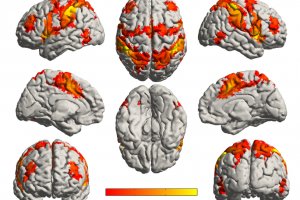Air pollution exposure during fetal life related to brain abnormalities, cognitive impairment in children
A new study reports that the air pollution levels related to brain alterations were below those considered to be safe.
A new study reports that the air pollution levels related to brain alterations were below those considered to be safe.
They observed brain development effects in relationship to fine particles levels below the current EU limit. This finding adds to previous studies that have linked acceptable air pollution levels with other complications including cognitive decline and fetal growth development. Exposure to fine particles during fetal life was associated with a thinner outer layer of the brain, called the cortex, in several regions. The study showed that these brain abnormalities contribute in part to difficulty with inhibitory control--the ability to regulate self-control over temptations and impulsive behavior--which is related to mental health problems such as addictive behavior and attention-deficit/hyperactivity disorder.
Researchers assessed air pollution levels at home during the fetal life of 783 children. The data were collected by air pollution monitoring campaigns, and included levels of nitrogen dioxide, coarse particles, and fine particles.
Brain imaging performed when the children were between 6 and 10 years old revealed abnormalities in the thickness of the brain cortex of the precuneus and rostral middle frontal region. Despite the relationship between these brain structure alterations and fine particle exposure, the average residential levels of fine particles in the study were well below the current acceptable limit set by the EU--only 0.5 percent of the pregnant women in the study were exposed to levels considered unsafe. The average residential levels of nitrogen dioxide were right at the safe limit.
The fetal brain is particularly vulnerable during pregnancy--it hasn't yet developed the mechanisms to protect against or remove environmental toxins. The findings of the study suggest that exposure to levels even below those considered safe could cause permanent brain damage.
Although specific individual clinical implications of these findings cannot be quantified, based on other studies, the observed cognitive delays at early ages could have significant long-term consequences such as increased risk of mental health disorders and low academic achievement, in particular due to the ubiquity of the exposure.
www.news-medical.net





Related Posts